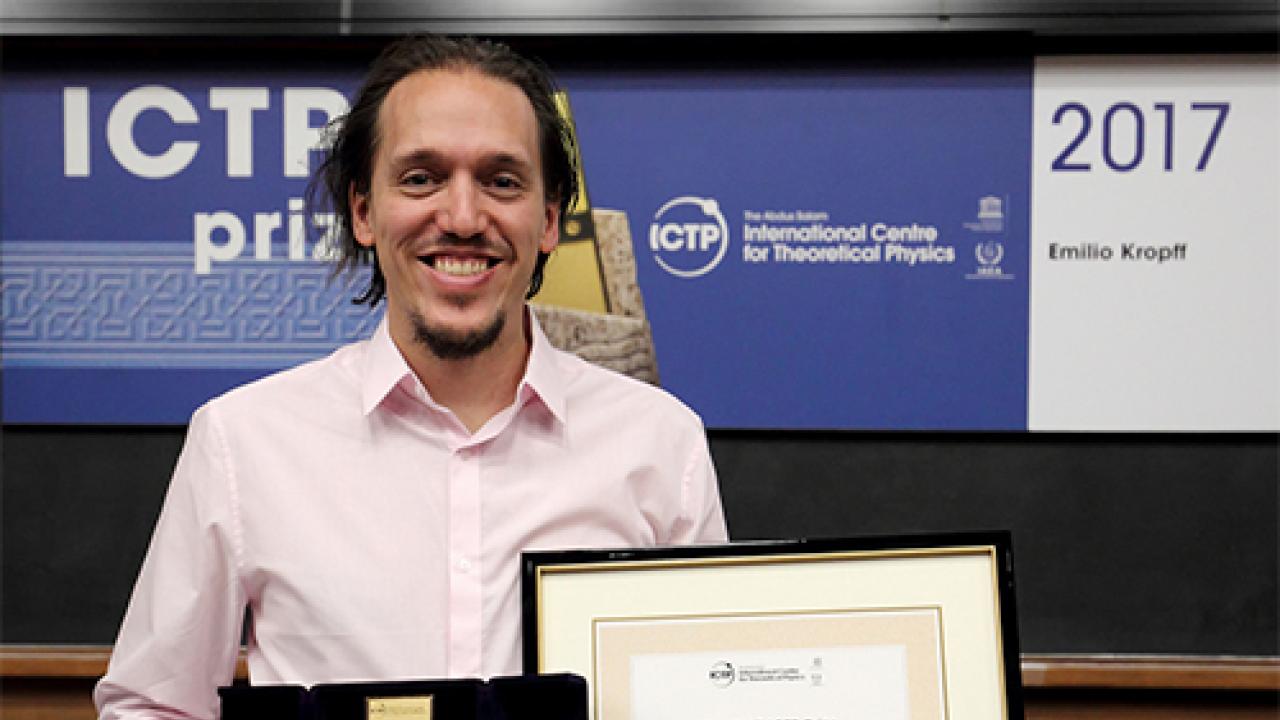
On Friday 29 June ICTP held an award ceremony for the 2017 ICTP Prize. The Prize was awarded to Emilio Kropff, a neuroscientist from Argentina affiliated with that country’s National Scientific and Technical Research Council’s (CONICET) Instituto de Investigaciones Bioquimicas de Buenos Aires (IIBBA), Leloir Institute. The Prize recognizes Kropff’s outstanding contributions to neuroscience.
The ceremony was recorded and can be viewed here. Photos of the ceremony are on ICTP's Flickr page.
Kropff's work addresses several aspects of memory and spatial cognition, combining both experimental and theoretical approaches. Most notably, Kropff discovered speed cells in the brain's entorhinal cortex, neurons that encode a high-precision measurement of speed. The discovery was crucial, as it provides the missing link in our understanding of how path integration, a mechanism contributing to spatial orientation based on self-motion rather than sensory cues, is implemented in the brains of rats. The study was featured in Nature in 2015.
Kropff's research builds on that by May-Britt Moser and Edvard I. Moser, who shared the 2014 Nobel Prize in Physiology or Medicine (along with John O'Keefe) "for their discoveries of cells that constitute a positioning system in the brain". The cells discovered by the Mosers, called "grid cells", make up a coordinate system in the brain's hippocampus that is used for spatial navigation. Kropff, who is interested in memory and spatial navigation, took the Mosers' work one step further by investigating how the brains of rats process the speed at which they travel to update their internal location map.
Kropff, who is an ICTP Associate, completed his studies in physics at the University of Buenos Aires, and went on to earn a doctorate in cognitive neuroscience at SISSA in 2007. He worked as a postdoc at the Norwegian University of Science and Technology under the direction of the Mosers. He is now a researcher at the Leloir Institute IIBBA-CONICET of Buenos Aires. As an ICTP Associate, he visits the Centre to collaborate with ICTP's Quantitative Life Sciences section.
Created in 1982, the ICTP Prize, recognizes young scientists (under 40) from developing countries who work and live in those countries and who have made outstanding and original contributions to physics. The prize includes a sculpture, a certificate and a cash award.













